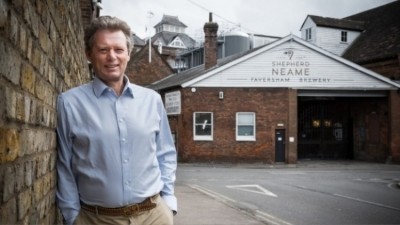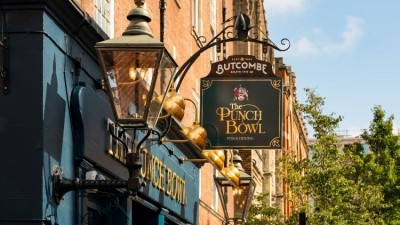CMBC: 'Bank's Brewery closure won't affect cask brands'

The company confirmed production of the Banks’s range and other ales brewed at the site, including Wainwright’s and Bombardier, will be transferred to the Martson’s Brewery in Burton-upon-Trent where a £6m plus investment over the next two years will enable a wider range of cask ales in modern styles to be brewed.
The global brewer announced on Monday (7 October) that Banks’s will close in the autumn of 2025, with nearly 100 jobs at stake.
Talks are under way with affected staff and their trade union, Unite, in which their redeployment elsewhere in the group will be considered.
“We are focused at the moment on supporting people through this change,” a CMBC spokesman added. “It is a challenging period for the guys at the brewery.”
Difficult decision
Closure of the 150-year-old brewery was triggered, said the company, by the decision in July this year by Philippines-based San Miguel Brewery that after 16 years it would not renew its contract with CMBC and switch UK production and distribution to AB Inbev from the beginning of 2025.
This left CMBC with “significant excess capacity across our brewery network which we have to address,” said CEO Paul Davies. “This has been an extremely difficult decision, however it has been necessary to restructure our business to maintain our competitiveness in a challenging UK beer market.”
Declining cask beer sales contributed to the case for closure. Yet CMBC declared a “long-term ambition to establish Marston’s Brewery in Burton as a national centre for craft beer and traditional ale brewing”.
Ash Corbett-Collins, national chair of consumer organisation the Campaign for Real Ale (CAMRA), was unconvinced, however.
Describing Banks’s as an “iconic mainstay in British brewing” he said the closure was “devastating but predictable" but following the buyout of CMBC by Carlsberg – essentially turning Marston’s brewing business into a globally owned brand – expected news like this sooner rather than later.
“After presiding over the closure of Jennings, the sale of the Eagle brewery and removing cask beers from bars in Scotland in the last few years, Carlsberg Marston’s are now closing another iconic brewery – putting jobs and the cask beers brewed there in jeopardy. This is more often than not the case when a global brewer buys a traditional British cask brewer.
“However, we do welcome the news that Carlsberg is open to offers for purchase of the site for continued brewing operations. The brands brewed at Banks's must continue to be brewed at the Marston’s brewery – their loss would be tragic for consumer choice and British beer", he said.
More positive news
The CMBC spokesman countered that with a whole year to go before the move the company had plenty of time to make the transition. “Master brewers at Banks’s are working with those at Marston’s to ensure the beers will remain the same standard, quality and character as people would expect, and there should be no impact on the supply to pubs.
They added: “The closure is only part of the restructuring. There is more positive news. The upgrade to the Marston’s Brewery will include a refurbishment of the cask ale line which will improve our ability to make dry-hopped and late-hopped ales and give us a new capacity for more contemporary hop-forward and hazy beers. Most of this work will be completed by the end of 2025.
“We appreciate it’s difficult now, but hopefully we can in time demonstrate that we’re committed to what is a big part of Britain’s brewing heritage.”
The closure of Banks’s will coincide with the brewery’s 150th anniversary. Originally a maltster the firm began brewing at the Park Brewery in 1875, rapidly becoming famous for its dark mild. A series of mergers created Wolverhampton & Dudley Breweries in 1890.
In 1999 Wolves was taken over by Marston’s which, following more acquisitions including Jennings, Wychwood, Ringwood and Charles Wells’ Eagle Brewery, was itself merged with Carlsberg in November 2020.








